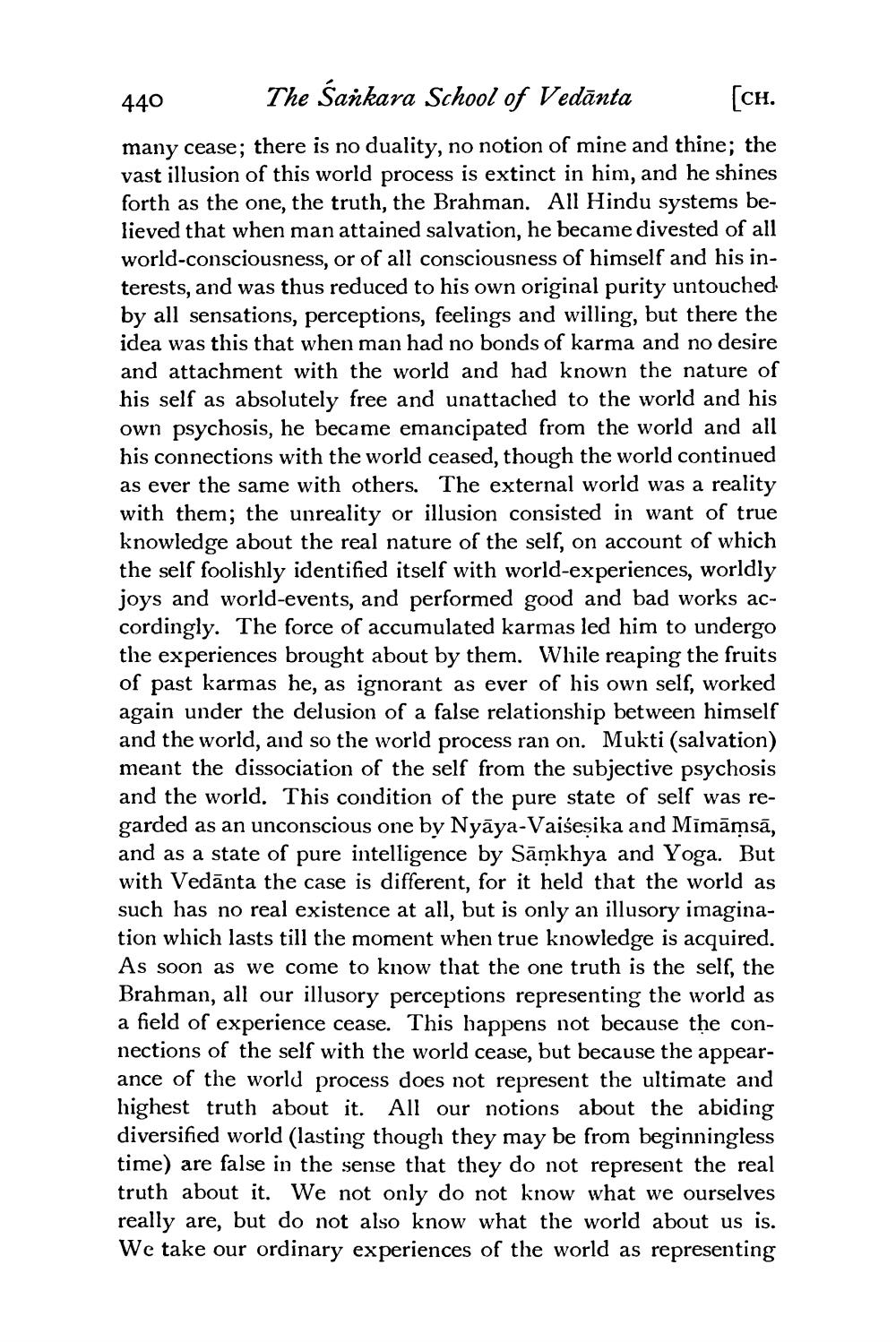________________
440
The Sankara School of Vedanta
[CH.
many cease; there is no duality, no notion of mine and thine; the vast illusion of this world process is extinct in him, and he shines forth as the one, the truth, the Brahman. All Hindu systems believed that when man attained salvation, he became divested of all world-consciousness, or of all consciousness of himself and his interests, and was thus reduced to his own original purity untouched by all sensations, perceptions, feelings and willing, but there the idea was this that when man had no bonds of karma and no desire and attachment with the world and had known the nature of his self as absolutely free and unattached to the world and his own psychosis, he became emancipated from the world and all his connections with the world ceased, though the world continued as ever the same with others. The external world was a reality with them; the unreality or illusion consisted in want of true knowledge about the real nature of the self, on account of which the self foolishly identified itself with world-experiences, worldly joys and world-events, and performed good and bad works accordingly. The force of accumulated karmas led him to undergo the experiences brought about by them. While reaping the fruits of past karmas he, as ignorant as ever of his own self, worked again under the delusion of a false relationship between himself and the world, and so the world process ran on. Mukti (salvation) meant the dissociation of the self from the subjective psychosis and the world. This condition of the pure state of self was regarded as an unconscious one by Nyāya-Vaiśeṣika and Mīmāmsā, and as a state of pure intelligence by Samkhya and Yoga. But with Vedanta the case is different, for it held that the world as such has no real existence at all, but is only an illusory imagination which lasts till the moment when true knowledge is acquired. As soon as we come to know that the one truth is the self, the Brahman, all our illusory perceptions representing the world as a field of experience cease. This happens not because the connections of the self with the world cease, but because the appearance of the world process does not represent the ultimate and highest truth about it. All our notions about the abiding diversified world (lasting though they may be from beginningless time) are false in the sense that they do not represent the real truth about it. We not only do not know what we ourselves really are, but do not also know what the world about us is. We take our ordinary experiences of the world as representing




